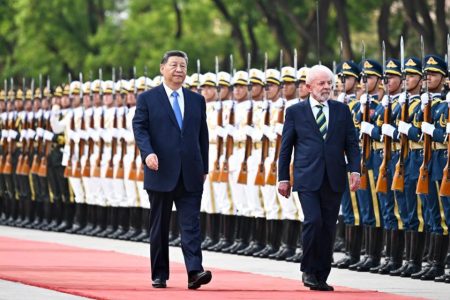Brazil has delivered unwelcome news ahead of Chinese President Xi Jinping’s state visit to the South American country in late November, announcing Monday that it would not be joining China’s multi-billion-dollar Belt and Road Initiative (BRI).
Celso Amorim, special presidential adviser for international affairs, told O Globo that Brazil would not join the BRI, instead seeking to “take the relationship with China to a new level, without having to sign an accession contract.” The aim, he explained, is to find “synergy” between Brazilian infrastructure projects and the investment funds associated with the initiative, without formally joining the group. China already invests in Brazilian infrastructure projects and by remaining outside the initiative, Brazil can continue to focus on the projects it defines as a priority.
The decision makes Brazil the second BRICS bloc country to opt out of the BRI, following India, and the first in South America. While more than 20 Latin American and Caribbean countries have signed onto the initiative, Brazil’s economic power and sheer size allow it to opt out without losing as much.
[See more: Brazil has leapfrogged Italy to become world’s 8th largest economy]
Opting in, however, would come with costs beyond differences in priorities between Beijing and Brasilia. The possibility of Donald Trump returning to power in the US looms large; his first term was characterised by strong anti-China sentiment and a penchant for using trade to punish his perceived enemies.
There is also a general consensus in Brazil that joining would fail to bring any tangible benefits in the short term, a perception underscored by Brazilian officials being “unconvinced and unimpressed” by China’s offers last week, according to reporting by South China Morning Post.
While securing Brazil would have been a significant victory for China’s flagship infrastructure initiative, the decision not to join is unlikely to seriously impact Sino-Brazilian relations. The two countries mark the 50th anniversary of diplomatic relations this year, continue to break records in trade, and Chinese companies view Brazil as a key strategic market for their global expansion.






